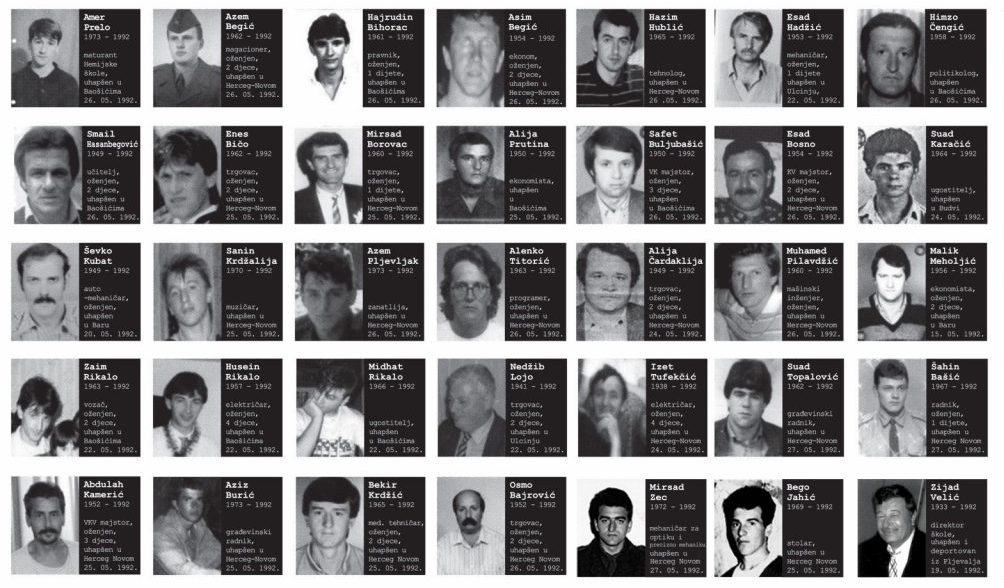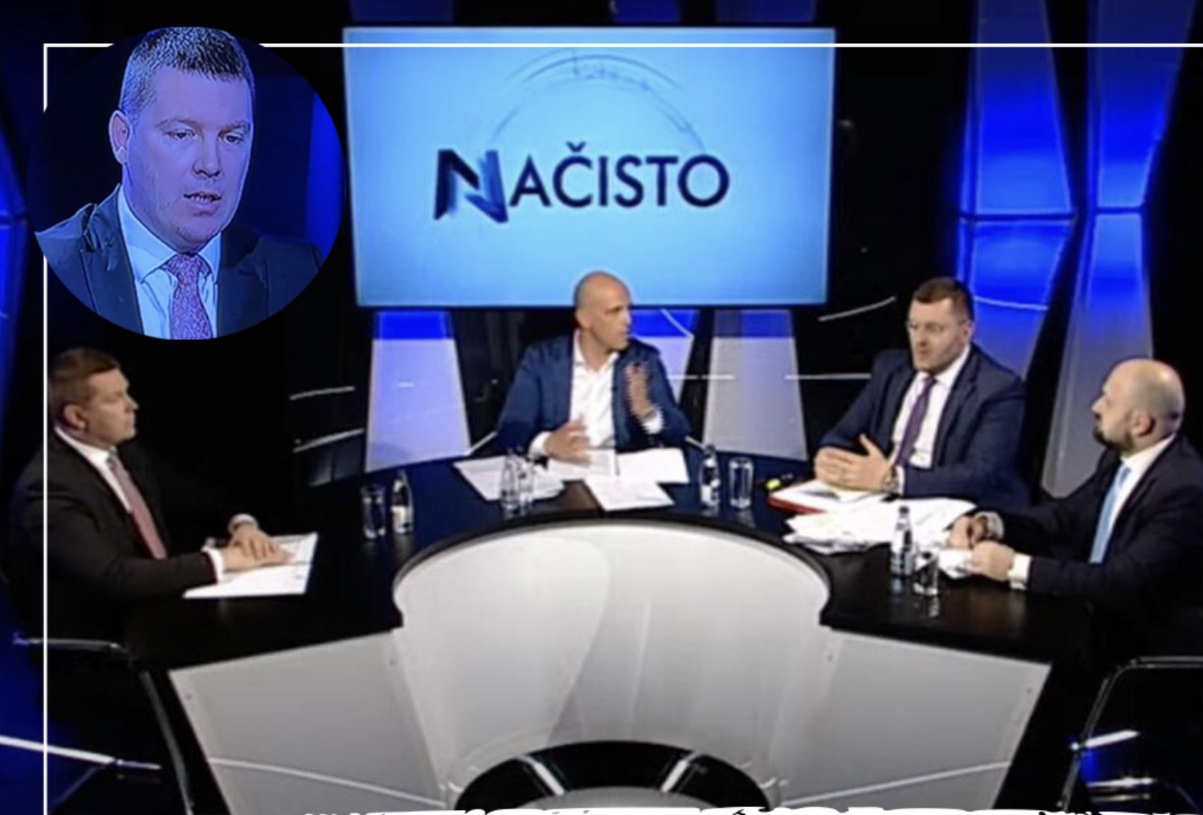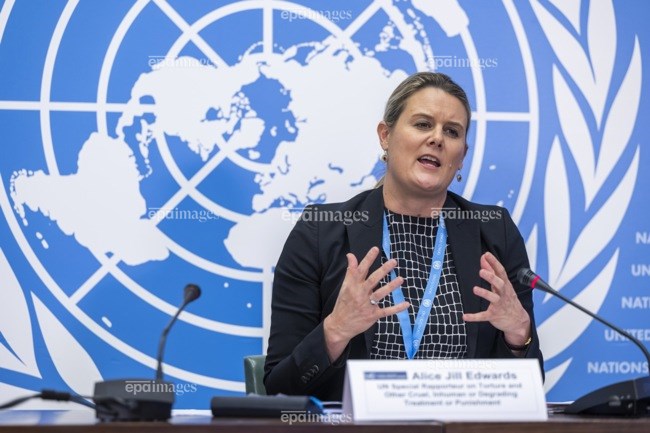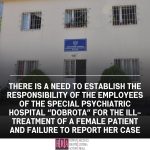
ECtHR REJECTS THE APPLICATION OF DEPORTATION VICTIMS: THEY LACK VICTIM STATUS, THE STATE SUFFICIENTLY RECOGNISED VIOLATION OF THEIR RIGHTS EVEN WITHOUT PUNISHING THOSE RESPONSIBLE
07/04/2023
Response of HRA Executive Director to Minister of Interior’s Public Accusations
14/04/2023U.N. SPECIAL RAPPORTEUR ON TORTURE HAS BEEN NOTIFIED OF INVESTIGATIONS OF POLICE TORTURE AND UNLAWFUL ACTIONS OF MINISTER ADŽIĆ

Dr. Alice Jill Edwards, Special Rapporteur on torture and other cruel, inhuman or degrading treatment or punishment
Today, the Human Rights Action informed the United Nations Special Rapporteur on Torture, Alice Jill Edwards, about the problems in the processing of reports of police torture in the investigation of the so-called “bombing attacks”, about 22 uninvestigated reports of extortion of testimony, which were partly confirmed by the photographs of torture that were recently published by the portal Libertas, and about the persistent refusal of the Minister of Internal Affairs to apply the law and suspend inspectors against whom criminal proceedings are pending for torture.
In July 2020, the HRA already addressed the Special Rapporteur on torture, Nils Melzer, concerning the ineffective investigation of the torture reports filed by Jovan Grujičić, Marko Boljević and Benjamin Mugoša. In August of the same year, together with Vice-Chair of the Working Group on Arbitrary Detention Ms. Elina Steinerte, Mr. Melzer sent a letter to the Minister of Foreign Affairs of Montenegro regarding this case, pointing out the need for the respect of relevant international standards on the prohibition of torture, liberty and security, and the protection of persons with disabilities including those of psychosocial nature. They also appealed to take all necessary measures to prevent the repetition of similar breaches, and to establish responsibility of those who committed them.
We informed the new Special Rapporteur that, despite the fact that three years have passed, no one has been indicted for extorting testimony from Jovan Grujičič, and that, almost a full year after the indictment, the trial against those who were charged with directly extorting testimony from Marko Boljević and Benjamin Mugoša has not even started. She was also informed about 22 reports of extortion of testimony that the HRA recorded in the past three years, which have not been effectively investigated to date. We also informed the Special Rapporteur about the photographs of police torture that were published by the portal Libertas, confirming that members of elite police ranks regularly used torture in 2020 and 2021. This behaviour remained unpunished to this day, and the perpetrators are still employed in the Police Administration.
We also pointed to the persistent refusal of the Minister of Internal Affairs, Filip Adžić, to suspend police inspectors accused of torture until the end of the criminal proceedings, despite the Law on Internal Affairs and the explicit recommendations of the Committee against Torture in Montenegro from 2014 and 2020 that all civil servants who are under investigation for ill-treatment be immediately removed from duty, and remain removed for the duration of the criminal proceedings. We asked if she, too, would send a letter to the Government regarding that case.
The Special Rapporteur can decide to submit a letter to the Government and/or other competent state authorities with a request that they declate their position regarding certain circumstances related to the above reports. If that happens, the state will have 60 days to respond to the letter. If she believes that a situation should be resolved as soon as possible, the Special Rapporteur may also send an urgent communication to the Government.
The Government of Montenegro has an obligation to inform the UN Committee against Torture by 13 May 2023 about the actions that were undertaken last year to investigate reports of extortion of testimony in 15 cases, about which the HRA has informed the Supreme State Prosecutor’s Office of Montenegro and the above Committee in April last year.
The Human Rights Action advocates for the implementation of absolute prohibition of torture and other inhuman or degrading treatment or punishment in Montenegro. To this end, it uses all the mechanisms for the protection of human rights that are available at the domestic and international level.







 English
English